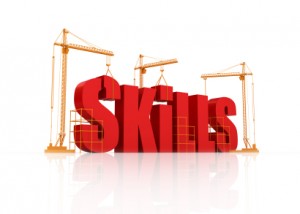
Director, Academic Initiatives, Society for Human Resource Management
In higher education, competency-based education is emerging as an approach to help students leverage past experiences and to help universities create more customized educational experiences. Students may bypass already-mastered subjects as determined by various measures that gauge the student’s competency. This allows a student to broaden his or her educational experience.
In general, competencies represent a collection of knowledge and behaviors that demonstrate mastery of knowledge, yet also show how an individual uses what he or she knows by consistently behaving in a manner that indicates proficiency.
Competency modeling is not a new concept. Many studies have been conducted to identify specific knowledge and behaviors required to be a competent professional in many fields. In the HR profession alone, scores of competency models have been developed over many decades.
However, the Society for Human Resource Management’s (SHRM’s) Competency Model distinguishes itself from other models by identifying a core set of nine competencies to master. It identifies which of the nine are most relevant at each of four career stages (early- and mid-career, senior, and executive) and further defines sub-competencies to master by demonstrating proficiency through exemplary behaviors. Any HR professional can use the SHRM’s Competency Model to map the competencies to master at each career level in order to advance to the next level.
The Big Picture
SHRM’s model, built in 2011 and launched in 2012, employed globally-based and rigorous research, further distinguishing the model as the first truly global professional competency model for the HR profession. It incorporates feedback from 1,200 HR professionals who participated in 111 focus groups worldwide. The model was then validated by survey research that reflects responses from 32,000+ HR professionals in over 33 countries.
Since its debut in 2012, SHRM has purposefully aligned its content, programs, and products to the model. Why? To provide HR professionals around the world with the resources they need to be more than technically proficient, they need to translate what they know through key behavioral competencies.
The combination of technical expertise and behaviors provides the right formula for success as an HR leader and as a business person. Consider this analogy: When you take your driver’s license test, you sit for a knowledge test first to check your technical understanding of the road rules and laws. But competency is not determined by this exam alone. You also undergo a road test which confirms you can act as a driver should when put in specific situations. This is the same model used when implementing the SHRM Competency Model.
How do SHRM’s curriculum guidelines incorporate the model? How does curriculum relate to SHRM’s competency-based certification? Where does the SHRM Assurance of Learning® Assessment for Graduating HR Students fit in?
Great questions! American Public University (APU) partnered with SHRM to ensure that its HR degree program curriculum aligns with SHRM’s Curriculum Guidelines. Over time, the guidelines have increasingly integrated the HR Competency Model. Even though the guidelines predate the model, SHRM revalidates the curriculum guidelines and the content outline of the student capstone exam every three to five years.
Consequently, the curriculum standards and the student capstone exam outline began to integrate the HR Competency Model when revalidated in 2013 and 2014 respectively. Now, the contents of both reflect the subject matter areas that faculty members teach regularly and that employers seek in entry-level candidates—topics that are captured in Competency #1: HR Technical Expertise—and the behaviors demonstrated by individuals at the highest level of proficiency on the indicated competency. Behavioral competencies in an entry-level HR position are those most commonly used to apply technical expertise: communication, relationship management, and ethical practice.
The HR Competency Model also serves as the foundation for SHRM’s competency-based certifications. A major initiative, certification exam development commenced in spring 2014 and the first tests were administered starting in May 2015. SHRM’s competency-based certifications—the SHRM-Certified Professional and SHRM-Senior Certified Professional—represent a major step to advance the profession. The SHRM Body of Competency and Knowledge (SHRM BoCKTM) tested on these exams is based on the HR Competency Model. The exams test both knowledge and behavior. Earning certification shows the individual has mastered the competencies needed to be a competent, successful HR professional.
Connecting the Dots
How does this dovetail with APU’s focus on competency-based education? By following SHRM’s curriculum guidelines and encouraging students to take the student capstone assessment as a stepping stone to certification, APU is already integrating the HR Competency Model by teaching professional competencies required to be successful as an early-career HR professional.
SHRM Certification provides the next step in the career progression of APU graduates, meaning graduates should plan now to master professional competencies required to be successful and then pursue certification once eligible. Thus, SHRM’s and APU’s efforts complement each other.
Ultimately, education, assessment and certification are the bow on the nicely-wrapped package of an HR professional’s career. It all starts with a solid, competency-based education in HR, but it continues via a path toward lifelong learning and competency in HR as demonstrated by becoming certified through SHRM.
About the Author: Nancy Woolever, director of Academic Initiatives at SHRM, leads SHRM’s efforts to help create better-prepared entry-level candidates through education, assessment and competencies. Her areas of expertise are curriculum and test development. Nancy holds a B.S. in Business and a Masters in Human Resource Development and is a SHRM-Senior Certified Professional.
Comments are closed.